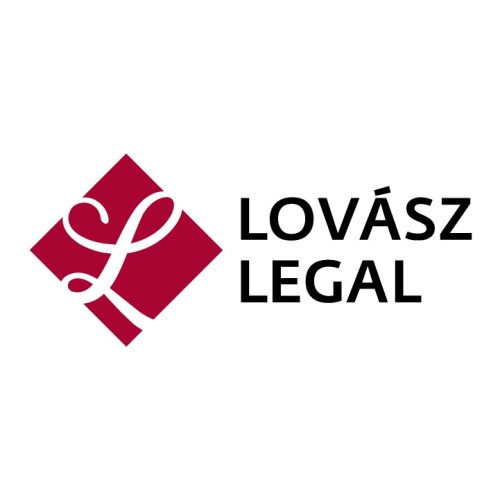Best Constitutional Law Lawyers in Slovakia
Share your needs with us, get contacted by law firms.
Free. Takes 2 min.
Or refine your search by selecting a city:
List of the best lawyers in Slovakia
About Constitutional Law in Slovakia
Constitutional law in Slovakia is primarily derived from the country's Constitution, which was adopted on September 1, 1992, and came into effect on January 1, 1993, when the Slovak Republic became an independent state. This body of law defines the framework for the political system, the fundamental rights and duties of citizens, and the main organs of the state, including the legislative, executive, and judiciary branches. It serves as the supreme legal authority in the country, ensuring that all other laws and policies are in alignment with its principles. The Constitutional Court of Slovakia is tasked with interpreting these laws and safeguarding the Constitution's integrity.
Why You May Need a Lawyer
There are several scenarios where individuals might require legal assistance regarding constitutional law in Slovakia. These include challenges to the constitutionality of laws or governmental actions, disputes regarding fundamental rights and freedoms, issues related to the division of powers among different branches of government, election-related concerns, or amendments to the Constitution. Additionally, if you believe that a law or its application violates constitutional principles, legal expertise can be essential in navigating the judicial process to address such grievances.
Local Laws Overview
In Slovakia, the Constitution serves as the cornerstone of local laws. It outlines the structure of government, the role of constitutional bodies, and the rights and duties of citizens. Key local laws relevant to constitutional law include:
- The mechanisms for amending the Constitution and the role of the National Council in this process.
- Interpretation and limits of fundamental human rights and freedoms as enshrined in the Constitution.
- The functions and jurisdiction of the Constitutional Court, including adjudicating disputes between state bodies and assessing the constitutionality of laws.
- Procedures for judicial review and legal remedies available to citizens.
- The relationship between international treaties and domestic laws, particularly in the context of European Union regulations.
Frequently Asked Questions
What is the role of the Constitutional Court in Slovakia?
The Constitutional Court is tasked with protecting the constitutionality of laws and resolving disputes regarding the interpretation and application of constitutional provisions.
Can individuals challenge laws on constitutional grounds?
Yes, individuals can bring cases to the Constitutional Court if they believe a law violates constitutional rights or principles.
How are constitutional amendments made in Slovakia?
Amendments require approval by a three-fifths majority of all members of the National Council, after which they are promulgated by the President of the Republic.
How are human rights protected under Slovak constitutional law?
Human rights are enshrined in the Constitution and protected by various constitutional provisions, ensuring all individuals enjoy these rights without discrimination.
What can I do if my constitutional rights are violated?
Individuals can seek legal recourse through the judiciary by filing complaints or appeals with the Constitutional Court.
How does Slovakia's constitutional law relate to EU law?
EU law takes precedence over national laws in matters regarding its jurisdictions, and Slovakia's constitutional provisions must align with EU treaties and regulations.
What is the process for addressing electoral disputes?
Electoral disputes, particularly those alleging constitutional violations, can be brought before the Constitutional Court for resolution.
Are there protections for minority groups in the Slovak Constitution?
The Constitution ensures equality and protection of rights for minority groups, preventing discrimination and promoting cultural and societal integration.
Who enforces constitutional law in Slovakia?
The judiciary, including the Constitutional Court and other courts, is responsible for enforcing constitutional law and ensuring that legislative and executive actions comply with constitutional mandates.
How does the Constitution impact governmental powers?
The Constitution establishes the separation of powers among legislative, executive, and judicial branches, delineating their distinct functions and jurisdictions.
Additional Resources
If you need further information or assistance regarding constitutional law in Slovakia, you might find these resources helpful:
- The Constitutional Court of the Slovak Republic: Provides rulings and decisions on constitutional matters.
- The Ministry of Justice of the Slovak Republic: Offers legal information and resources related to constitutional law.
- Slovak National Council: Information on legislative processes and constitutional amendments.
- Local legal aid organizations: Offer legal advice and services for individuals seeking assistance with constitutional issues.
Next Steps
If you require legal assistance in constitutional law, consider taking the following steps:
- Research and identify legal professionals or firms specializing in constitutional law in Slovakia.
- Consult with a constitutional lawyer to discuss your situation and obtain expert advice on your legal options.
- Gather all relevant documents and evidence to support your case or inquiry.
- Consider reaching out to legal aid services or advocacy organizations if you need financial assistance with legal representation.
- Stay informed about your rights and any changes to the constitutional framework that may impact your case.
Lawzana helps you find the best lawyers and law firms in Slovakia through a curated and pre-screened list of qualified legal professionals. Our platform offers rankings and detailed profiles of attorneys and law firms, allowing you to compare based on practice areas, including Constitutional Law, experience, and client feedback.
Each profile includes a description of the firm's areas of practice, client reviews, team members and partners, year of establishment, spoken languages, office locations, contact information, social media presence, and any published articles or resources. Most firms on our platform speak English and are experienced in both local and international legal matters.
Get a quote from top-rated law firms in Slovakia — quickly, securely, and without unnecessary hassle.
Disclaimer:
The information provided on this page is for general informational purposes only and does not constitute legal advice. While we strive to ensure the accuracy and relevance of the content, legal information may change over time, and interpretations of the law can vary. You should always consult with a qualified legal professional for advice specific to your situation.
We disclaim all liability for actions taken or not taken based on the content of this page. If you believe any information is incorrect or outdated, please contact us, and we will review and update it where appropriate.
Browse constitutional law law firms by city in Slovakia
Refine your search by selecting a city.











